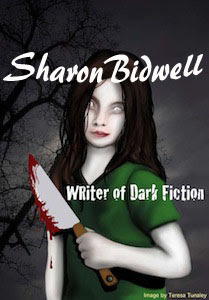As many of my readers may know, I'm one writer in the multi-authored Lethbridge-Stewart series, aka The Brigadier of Doctor Who fame. So I thought to look back at the book that launched the series by the author and editor, Andy Frankham-Allen.
My most lasting memory of The Brigadier is an episode of Doctor
Who (I could not tell you which) starring Jon Pertwee. I have a clear
image in my head of the Doctor driving away in Bessie with
Alistair Lethbridge-Stewart looking on. Whether time has altered that
visual I don’t know, but that is my clearest memory of first seeing
Nicholas Courtney play a character as well-beloved by Who fans as any of
the companions.
I’m a Doctor Who fan, but I cannot call myself an aficionado. An abiding
love is not the same as repeatedly watching and researching the series
to be as knowledgeable as Andy Frankham-Allen. His love of the show
shines through not only in this story but in that Lethbridge-Stewart now
appears as the lead in a new series of books. I didn’t even know that
the first appearance of Lethbridge-Stewart takes place in a 1968 episode
The Web of Fear before reading the first book, nor do I remember the Yeti who terrorised London at the control of the Great Intelligence.
The Forgotten Son is a sequel of that story where the Great Intelligence, having escaped, leads Colonel Lethbridge-Stewart away from restoring order in London to his birthplace of Bledoe in Cornwall where he has to face not only a resurgence of the threat but some peculiar truths pertaining to his past. In this way, we learn a great deal more of the character, and in that, the story becomes more than a mere continuance.
As I’m not a diehard fan, I reserved my expectations. I wasn’t sure I
would enjoy the story at all, but the writing is warm and opulent,
making even the more complex elements easy to read and understand.
Although I’d say it’s an action driven book, it still reveals much about
the characters. I found the work a little choppy in places, but to
explain I need to add that some scenes run short, unlike in most novels;
however, I’ve encountered this with some tie-in/spin-off series from
television before. These books often seem written as complements to the
episodes, and the change of scenes happens the way they might in a show.
Once I grew used to this, I no longer found it a problem. A pleasure
was seeing the story set in Cornwall, an area I know well.
The story is the first and perhaps the hardest to produce. It’s the springboard from which other stories will come and sets the tone, provides a background even those who watch Doctor Who will be unfamiliar with. I’m just sorry Nicholas Courtney didn’t live to see these books come to the market. I can think of nothing better than had he a chance to read even a snippet of this aloud to an audience.
I began the book with a fondness for Lethbridge-Stewart created from
nostalgia and memories, but with no desire to get to know this character
at all. I finished it, wondering where the novels will take him and
what more they might reveal about Lethbridge-Stewart’s job and
beyond—the man (both fictitious and real) who will always be to me The
Brigadier.
I cannot end without praising all those who aided in getting this series
launched at all. Whether the books meet with commendation or censure,
the character deserves his own series and has been too long overlooked.


